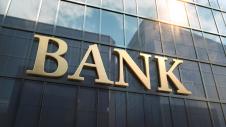The chief economists of the four systemic banks, Mr. Tasos Anastasatos of Eurobank, Mr. Nikos Manginas of National Bank, Mr. Elias Lekkos of Piraeus Bank and Mr. Panagiotis Kapopoulos of Alpha Bank, speaking to Business Daily, point out that the recovery of the investment grade will mark the return of the Greek economy to normality.
At the same time, it will have tangible and immediate results, with the most important being the reduction of borrowing costs for banks - private sector and the restoration of our country on the radar of large foreign institutional investors with a long-term horizon, who until now could not invest in our country due to the absence of investment grade.
As the Governor of the Bank of Greece, Yannis Stournaras, noted in a recent interview, a large inflow of capital into the domestic economy is expected, as many investment funds have a restriction in their statutes not to invest in countries that do not have investment grade. "About 80% of funds around the world have this restriction, so imagine, the Greek economy is now opening up to a different kind of investors than the ones we have today. So the benefit will be great, not only for the state, not only for the banks, but also for the private sector in general," he said.
Investment grade is just around the corner
By all accounts, the recovery of the investment grade will be achieved quickly, probably right after the summer, as the last hurdle, political stability, seems likely to be overcome after the May 21 election result.
Of course, the political risk has not yet been fully eliminated, as even a limited change in correlations with a slight decrease in the share of New Democracy combined with the election of two additional parties in parliament could lead to a weak government majority.
It should be noted that the political stability - strong government strand is not a direct requirement for investment grade rating agencies, but the means to achieve fiscal discipline and implement the necessary reforms.
What the chief economists tell Business Daily
According to the banks' chief economists, although the markets have already discounted investment grade recovery to a significant extent, the benefits for the Greek economy will be multiple: lower country risk, Greek bonds will again be eligible for ECB eligibility, borrowing costs will be contained and new investors with a long-term horizon will re-enter the domestic money and capital markets.
Greater benefits are expected for the bond market and the stock market, as many foreign investors could not invest in Greek securities due to the absence of the investment grade.
However, the recovery of the investment grade is only a step, the threshold, as the improvement and strengthening of the Greek economy could lead to better ratings, ratings enjoyed by most European countries. The investment grade is not the end of the road but requires continuous effort, while failures and bad policies could lead our country back into adventures.
Τ. Anastasatos: Positive impact on investment
Tasos Anastasatos, Chief Economist at Eurobank says that the recovery of the investment grade seals Greece's return to normality, while it also has an important practical dimension as it reduces the cost of borrowing for the public and private sectors.
"The biggest benefit will be for the private sector, as the public sector already enjoys exceptional borrowing terms on the debt stock due to the structure of public debt. In the private sector, the recovery of the investment grade can have a large benefit on borrowing costs, especially for banks which need to raise significant amounts from the markets under the MREL supervisory requirements. The reduction in borrowing costs through the reduction in country risk by recovering the investment grade will also have a reflection on the borrowing costs of the private sector, corporates and households. Although a significant part of the benefit of the recovery of the investment grade has been discounted by markets, which is typically reflected in Greek bond prices trading at a lower yield than Italian bonds, it is important that this improvement is sustained and enhanced in the long run. Finally, the recovery of the investment grade will greatly increase the pool of investment funds that will be able to 'see' our country from now on. It should be noted that too many funds are not allowed by their statutes to invest in non-investment grade countries. This is a development that will have a positive effect on investments, mergers and acquisitions and other business deals as well as the stock market. It should be noted, however, that investment grade is not a panacea and attracting long-term investment is directly linked to the reforms that need to be made in the country."
N. Manginas: Multiple benefits for the Greek economy
Nikos Manginas, Chief Economist at National Bank of Greece, tells Business Daily that the Greek economy now meets all the conditions for an immediate upgrade, while markets are already discounting the emerging trends. According to Mangina, the additional benefits are not negligible, as, among other things, the upcoming upgrade:
- It will make Greek securities accessible to a wider range of investors with longer-term investment strategies, deepening quantitatively and qualitatively the demand.
- It will further improve the estimated risk in the pricing of private sector borrowing costs, both by banks and markets, and the net cost of raising liquidity from banks themselves. The benefits will be greatest for small and medium-sized enterprises.
- It will contribute to a sustained reduction in the cost of borrowing for the Greek government, which, based on the yield of the 10-year bond, has historically recorded the largest negative spread against its Italian counterpart.
- It will accelerate investment decisions, with the discount rate of future yields being directly linked to the rating, and will diversify the quality and sectoral composition of foreign direct investment while supporting domestic asset valuations.
"All of the above is expected to create favourable conditions for a more robust and socially inclusive economic recovery, contribute to narrowing the investment gap, while making the country less vulnerable to future economic fluctuations."
IL. Lekkos: The end of the adventure, back to sustainable development
Ilias Lekkos, Chief Economist of Piraeus Bank stresses: "The recovery of the investment grade rating will mark the end of the great crisis of the Greek economy that started in 2010, with the continuous downgrades of the economy that reached "selective bankruptcy". The return to investment grade will certify the return of the Greek economy to a growth path with positive prospects and we will cease to be the great exception in the eurozone.
However, the markets have already largely discounted Greece's return to investment grade and it is typical that Greek bond yields are at the same level as Spanish bonds. So we are unlikely to see anything spectacular once the first rating agency puts its stamp of approval on investment grade.
But there are two points on the markets side that could have a big impact. The first is on investment, as there are institutional restrictions on large categories of investments that do not allow them to invest in non-investment grade markets. So with the recovery of the investment grade, it opens the door to a very large number of foreign investors who until now could not invest in Greece even if they saw the positive prospects of Greece. Slowly but surely we will see more flows into both bonds and equities when this restriction is lifted.
The second point that could have a significant impact is the fact that the sovereign risk premium that all analysts use to value Greek assets will be very much reduced. This will lead to a re-pricing of domestic assets mainly on the equity side."
P. Kapopoulos: The recovery of investment grade is a milestone
Panagiotis Kapopoulos, Chief Economist of Alpha Bank, describes the recovery of the investment grade as a milestone that will set in motion many cogs in the Greek economy with a positive impact on many levels.
According to Mr. Kapopoulos, four points stand out:
- The recovery of the investment grade will be a milestone for the Greek economy not only because it repositions the country as an investment destination for long-term return capital but also because it creates particularly favourable liquidity conditions for the Greek government, banks, insurance funds and, above all, households and businesses.
- This fact becomes even more important as we are going through a phase of rising interest rates internationally as a result of the interventions of central banks in order to contain the strong inflationary pressures that have emerged - on the one hand from the fiscal expansion on both sides of the Atlantic and on the other hand from the rise in energy prices.
- The upgrade of the Greek sovereign credit rating will reduce the cost of raising capital for Greek financial institutions. In addition, the ECB will find it easier to raise liquidity from the ECB by guaranteeing government bonds as they will be valued at their real value.
- Cheaper borrowing for banks will reduce the cost of borrowing for firms, significantly cushioning the impact of the ECB's contractionary monetary policy.








